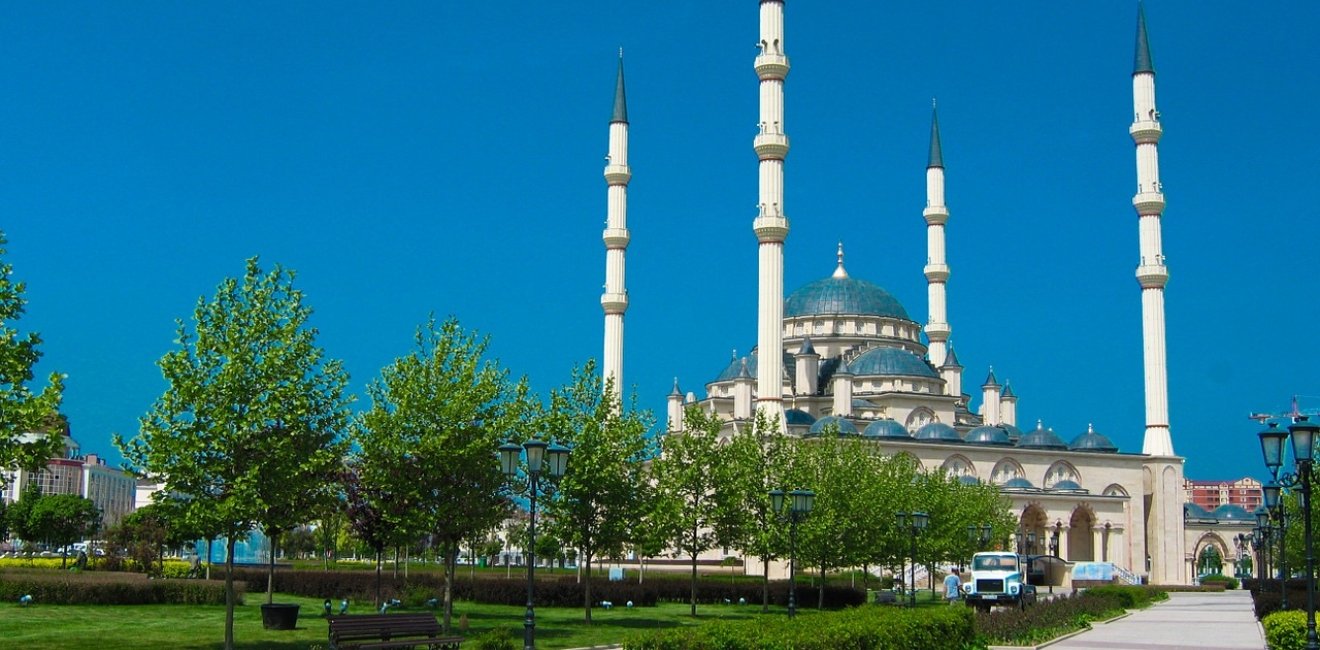
Emma Gilligan is a former George F. Kennan fellow with the Kennan Institute, where she focused her research on post-conflict justice in the aftermath of the two Chechen wars. Before she finished her fellowship, we asked her to reflect on her work at the Kennan Institute and how she hopes her research will have a positive impact.
Q: Tell me about your background and what brought you to the Wilson Center.
I’m trained as a Russian historian who now works on contemporary Russian politics, civil society, and human rights law. I received my Ph.D. in Australia and was a post-doctoral fellow at Chicago, then a professor at the University of Connecticut and now I’m at Indiana University, Bloomington. Of course, the Wilson Center and especially the Kennan Institute have long-standing reputations and it has been an absolute pleasure to be here. The combination of scholarship and the interaction with State Department and government agencies has allowed me to develop a deeper understanding of the importance of academic work in the policy field; this is a very encouraging and inspiring sign and one that helps to keep me enthusiastic about what I do.
Q: Talk about what you are working on here.
While at the Wilson Center I’m looking at several topics related to post-conflict justice in Chechnya in the aftermath of the two Chechen wars. I’m trying to understand what efforts have been made by the Russian and Chechen administrations to compensate victims for bodily harm or the loss of a relative as a result of the wars. That is, how the domestic judicial system is using both Russian law and European human rights law to support civilian victims.
Q: How did you become interested in your current research topic?
I wrote the book Terror in Chechnya: Russia and the Tragedy of Civilians at War (Princeton UP 2011) that examined the second Chechen War from the perspective of international humanitarian law. What information did we have? What could we say about the nature of the crimes that took place there? I then accidently came across several domestic decisions from the civil courts in Chechnya online and began to see that many cases had been processed through the system from 2010 to 2015. So I began to read them and to try and understand what was happening at the local level, i.e. was this a form of post-conflict justice? How best to interpret these cases in light of the current regime?
Q: Why does your research matter?
I think there is general agreement that for there to be stabilizing peace in a post-conflict society, there must be a justice mechanism of some kind, whether it be a truth and reconciliation commission, criminal tribunal or lustration process – or some combination of all three. Chechnya has not applied any of these frameworks, so it is important to understand how local activism, whether it be from lawyers or judges, has tried to fill gaps as best as they can.
Q: What is the most challenging aspect of your research?
Probably access to information and to people. I have been able to meet with many activists, lawyers, and practitioners who have been incredibly helpful in different places across the world. Access to the case decisions was once available on the rospravosudie website [a non-governmental website that publishes court decisions], but that was taken down after a case was filed against the company around privacy issues.
Q: What do you hope the impact of your research will be?
I hope that my research will show that a process of compensation was indeed initiated in Chechnya despite the very well-founded negative view we have of the region. What is worth remembering is the importance of supporting and examining local initiatives and pushing for the application of international and regional human rights law in Russia. And this is by no means a closed story. Some of the applicants who received compensation for moral harm are now suing to have criminal cases re-opened in the hope that they can find out what happened to their disappeared relatives or those who were summarily executed. These individuals and their advocates will continue to place steady pressure on the legal system, and sometimes it works.
The opinions expressed in this article are those solely of the authors and do not reflect the views of the Kennan Institute.
Author

Associate Professor, Department of International Studies, Indiana University

Kennan Institute
After more than 50 years as a vital part of the Wilson Center legacy, the Kennan Institute has become an independent think tank. You can find the current website for the Kennan Institute at kennaninstitute.org. Please look for future announcements about partnership activities between the Wilson Center and the Kennan Institute at Wilson Center Press Room. The Kennan Institute is the premier US center for advanced research on Eurasia and the oldest and largest regional program at the Woodrow Wilson International Center for Scholars. The Kennan Institute is committed to improving American understanding of Russia, Ukraine, Central Asia, the South Caucasus, and the surrounding region through research and exchange. Read more

Explore More
Browse Insights & Analysis
The OSCE is a Good Value for America

Infographic | Russia's Illegal Annexation of Crimea

Russia’s Indigenous Communities and the War in Ukraine

